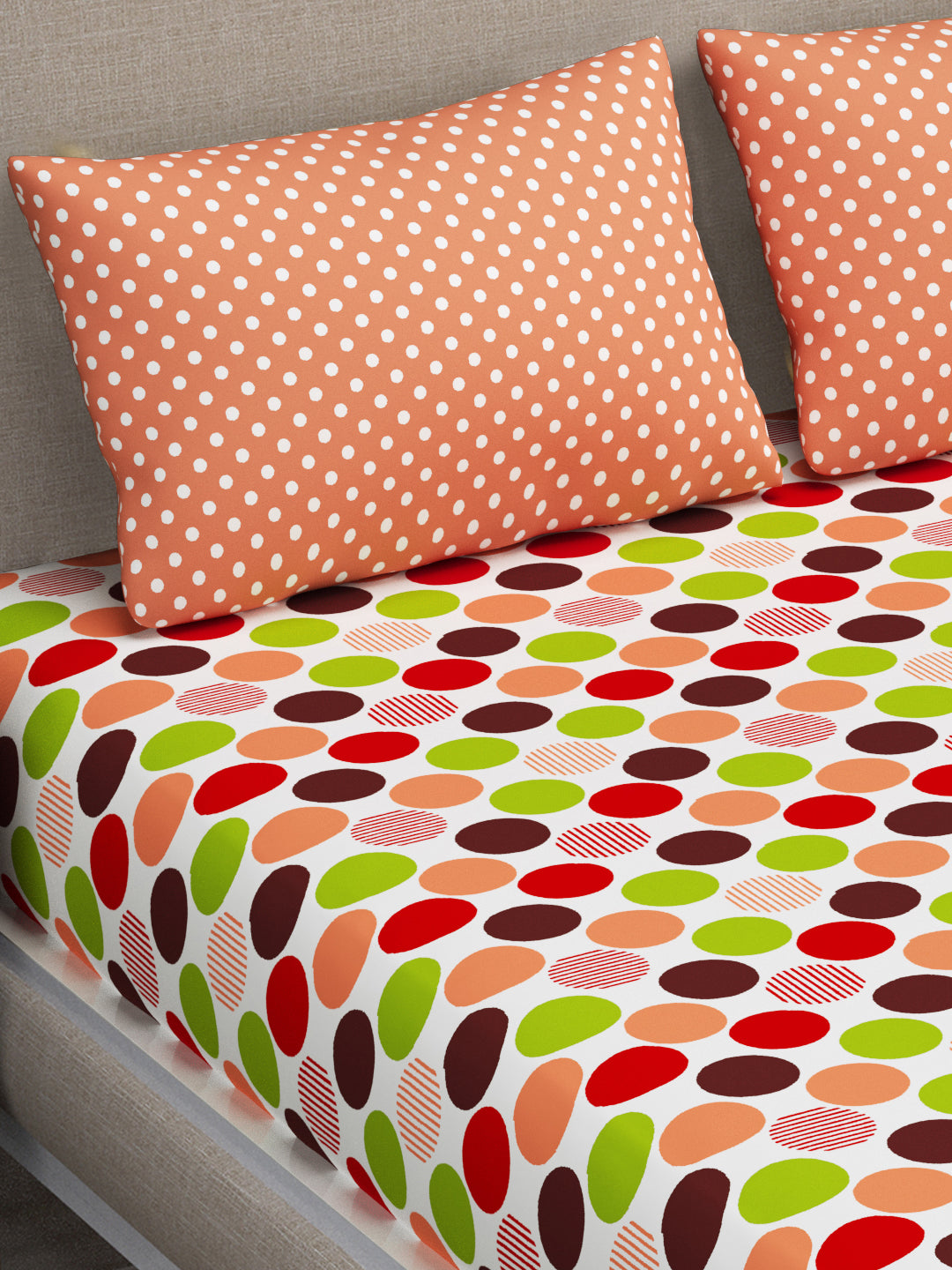The Importance of Regularly Changing Bed Sheets: A Comprehensive Guide

Introduction:
Changing bed sheets is a chore often overlooked but crucial for maintaining a clean and comfortable sleeping environment. The frequency with which you should change your bed sheets depends on several factors, including personal preference, lifestyle, and environmental conditions. In this comprehensive guide, we'll explore the reasons behind changing bed sheets, factors influencing the frequency of change, and practical tips for maintaining optimal sleep hygiene.
Importance of Changing Bed Sheets
Regularly changing bed sheets is essential for several reasons:
- Hygiene: Bed sheets accumulate sweat, body oils, dead skin cells, and dust mites over time, creating an environment conducive to bacterial and fungal growth. Regular washing removes these contaminants, promoting better sleep hygiene and reducing the risk of skin irritation and allergies.
- Odor Control: Perspiration and body oils can create unpleasant odors that linger in bed linens. Changing sheets regularly helps eliminate these odors, ensuring a fresh and inviting sleep environment.
- Allergen Reduction: Dust mites thrive in bedding, feeding on dead skin cells and triggering allergies in sensitive individuals. Laundering sheets at appropriate intervals reduces dust mite populations, alleviating allergy symptoms.
- Skin Health: Dirty bed sheets can harbor bacteria and fungi, leading to skin infections and exacerbating existing skin conditions such as acne or eczema. Clean sheets promote better skin health and contribute to overall well-being.
Factors Influencing Frequency of Change
Several factors influence how often you should change your bed sheets:
- Personal Hygiene Habits: Individuals who shower before bed and avoid eating in bed may be able to go longer between sheet changes compared to those with different habits.
- Climate and Season: Hot, humid climates increase sweating and may necessitate more frequent sheet changes to maintain comfort and hygiene.
- Sleeping Environment: Factors such as pets sharing the bed, presence of allergies, and use of sleep aids like lotions or oils can affect how quickly sheets become soiled and need changing.
- Fabric Type: Certain fabrics, such as silk or bamboo, may require more frequent washing to maintain their luxurious feel and appearance.
Recommended Frequency of Changing Bed Sheets
While there's no one-size-fits-all answer to how often you should change your bed sheets, here are some general guidelines:
- Weekly: For most people, changing bed sheets weekly strikes a balance between hygiene and convenience. This frequency helps prevent the buildup of sweat, oils, and allergens while remaining manageable for busy schedules.
- Every 2 Weeks: If you have a particularly hectic schedule or live alone without pets, changing sheets every two weeks may suffice. However, it's essential to maintain other aspects of sleep hygiene, such as regular bathing and vacuuming, to compensate for less frequent sheet changes.
- Every 3-4 Weeks: In certain circumstances, such as a guest bedroom or for individuals with minimal perspiration, changing sheets every three to four weeks may be acceptable. However, be mindful of any changes in odor or hygiene and adjust accordingly.
- As Needed: Specific situations, such as illness, incontinence, or excessive sweating, may warrant more frequent sheet changes. In these cases, prioritize cleanliness and comfort to prevent the spread of germs and maintain a healthy sleep environment.
Tips for Maintaining Clean Bed Sheets
Regardless of how often you choose to change your bed sheets, following these tips can help keep your bedding fresh and hygienic:
- Use Pillow Protectors: Encasing pillows in protective covers helps prolong their cleanliness between washes and prevents the accumulation of dust mites and allergens.
- Rotate Bedding: Having multiple sets of sheets allows you to rotate them regularly, extending the time between washes and reducing wear and tear on individual sets.
- Wash in Hot Water: Washing sheets in hot water (at least 130°F or 54°C) helps kill bacteria, dust mites, and other pathogens effectively.
- Dry Thoroughly: Ensure sheets are completely dry before returning them to the bed to prevent mold and mildew growth.
- Spot Clean Between Washes: Address spills, stains, and localized soiling promptly to prevent them from becoming embedded in the fabric and causing odors.
- Vacuum Mattress: Regularly vacuuming your mattress helps remove dust, debris, and allergens that accumulate over time.
Read more: Bedding Hygiene and Longevity: The Key to Clean and Comfortable Sleep
Conclusion:
Regularly changing bed sheets is essential for maintaining a clean and healthy sleep environment. By adhering to these guidelines and adjusting based on personal preferences and circumstances, you can maintain a clean, comfortable sleeping environment conducive to restful sleep and overall well-being. Remember, the key is consistency and attentiveness to hygiene to reap the benefits of fresh bed sheets.
